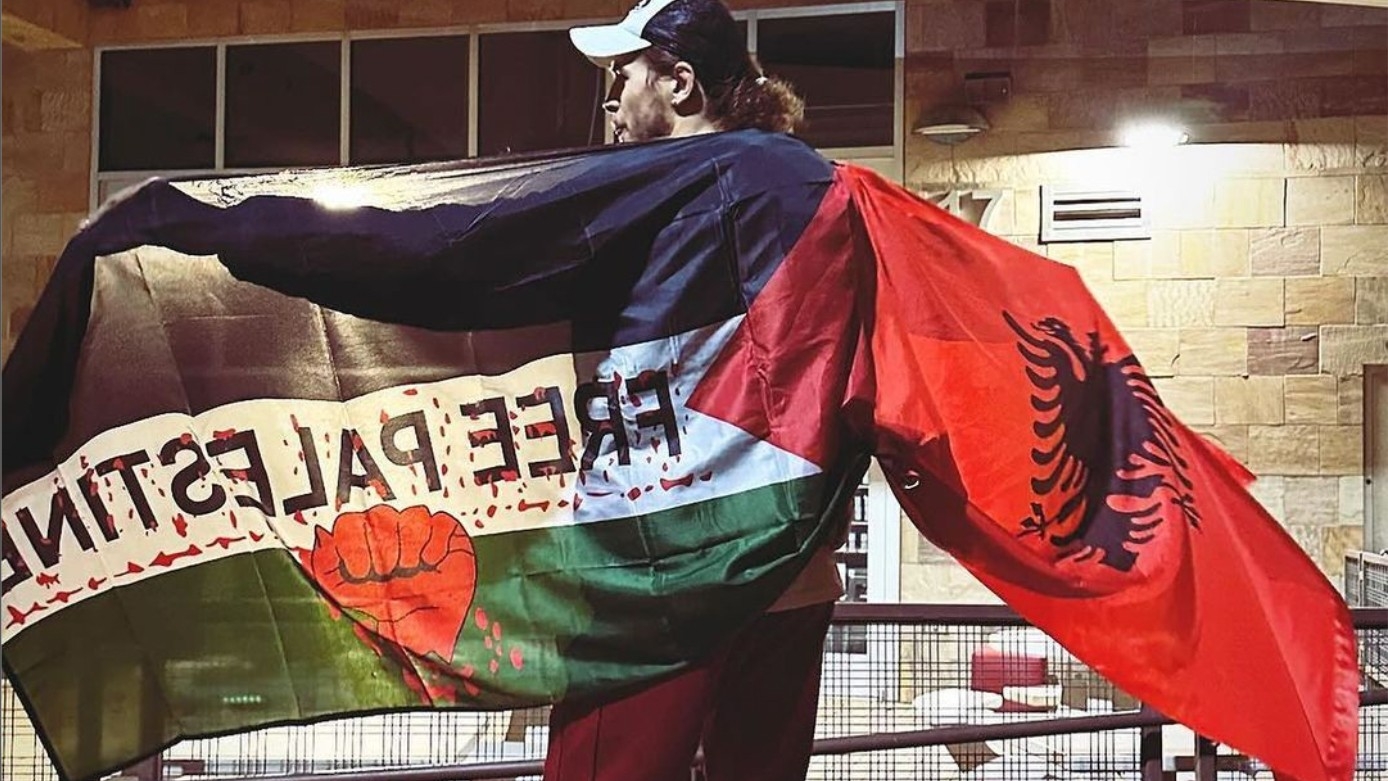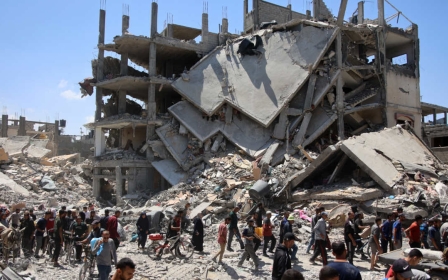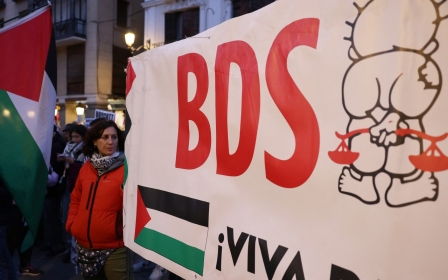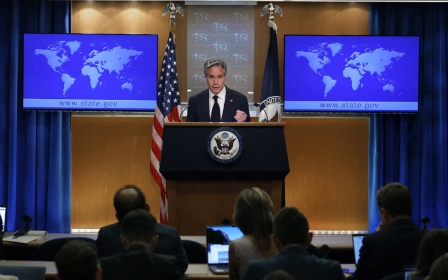Albania: Activists say Israeli participation in cultural week is ‘normalising genocide'

Campaigners in Albania are calling on the government to stop Israel from participating in a national cultural event, describing it as “a blatant attempt to normalise genocide”.
The call to ban Israel is being led by figures within Albania's cultural community and has garnered more than 600 signatures from an organisation called "Palestina e lire" or Free Palestine.
It reflects a larger global campaign to boycott Israel, which is accused of committing genocide in its war on Gaza.
The International Cultural Weeks, organised by the Albanian Ministry of Economy, Culture, and Innovation, runs from May to November in the country’s capital, Tirana.
In past years the International Cultural Week has seen Israel showcase its music, arts and works of literature.
New MEE newsletter: Jerusalem Dispatch
Sign up to get the latest insights and analysis on Israel-Palestine, alongside Turkey Unpacked and other MEE newsletters
This year, however, many pro-Palestine campaigners spearheaded by "Palestina e lire" in Albania feel that given the bloodshed in Gaza and the war crimes charges levelled at the state and its leading politicians, Israel should not be allowed to "whitewash" its ongoing crimes.
Criticism of Israel in Albania is muted, given a media landscape in Albania that is heavily aligned with and controlled by the government of Prime Minister Edi Rama, who is seen as close to Israel.
But for much of the country's population, which is majority Muslim, it is increasingly difficult to shut out awareness of what is happening in Gaza.
This is especially the case, as the Palestinian death toll exceeds more than 36,000.
The petition aims to spotlight the plight of Palestinians in the country, said Vincent van Gerven Oei, one of the petition's signatories, speaking to Middle East Eye from Albania.
“I think the maximum that you can expect is to force those in the cultural field, cultural producers, artists to take a public position and force some type of accountability within the field of art and culture about this issue,” said Oei.
The petition stresses Albania's long history of friendship and solidarity with both Jews and Palestinians.
“Nowhere is this more apparent than in the shelter and protection provided to Jewish refugees in response to the genocidal policies of the Nazi regime during the Second World War,” the petition states.
Between 'indifferent' and 'Zionist'
During the communist period in the 1970s, Albania supported the Palestine Liberation Organization, particularly Fatah, by training guerrilla fighters battling against Israel in occupied Palestine.
While Albania has a undergone dramatic shift towards the Western world order since, there is still a lot of opposition to the idea of colonialism and occupation.
The Palestinian cause intersects with “decolonialism, ideas of queer resistance, and ideas of feminism against the forces of fascism in this world—forces that are gaining strength and appear in many different varieties, including the variety of Zionism,” said Oei.
Younger Albanians in the country and abroad are also increasingly at the forefront of raising awareness regarding the Palestinian cause.
Those in the diaspora, especially youths, are seen as being more distant from the pro-Western mindset that dominates the country's political scene.
For those with memories of the Kosovo Liberation Army's struggle with neighbouring Serbia (then Yugoslavia), there are close parallels between the suffering of ethnic Albanians and Palestinians in Gaza.
Nevertheless, many in Albanian’s media and political class want to be seen as aligning with the West in support of Israel, said Fioralba Duma one of the main organisers of the petition.
This is in part due to “internalised Islamophobia and an inferiority complex towards Europe,” Duma told MEE.
“The best case scenario is that the Albanian government is totally indifferent regarding the Palestinians, in the worst scenario I think they can be called Zionist,” said Duma.
Since 7 October, when Hamas attacked Israel the Albanian government has gone out of its way to express solidarity with Israel but its public stance towards Palestinians is quite the opposite, added Duma.
In October and November, Albania abstained from votes at the United Nations calling for a ceasefire in Palestine drawing controversy in the country.
Attempts to protest in the country have sometimes been blocked by the government and graffiti with messages such as “free Palestine” was quickly erased by authorities, said Duma.
It's against this backdrop that Duma and the other signatories warn the Albanian government that "the role of cultural events must never be to serve as a veil to obfuscate the reality of the atrocities that are committed on an ongoing basis under the watchful eye of the world and become acts of complicity with the aggressor."
Middle East Eye delivers independent and unrivalled coverage and analysis of the Middle East, North Africa and beyond. To learn more about republishing this content and the associated fees, please fill out this form. More about MEE can be found here.




